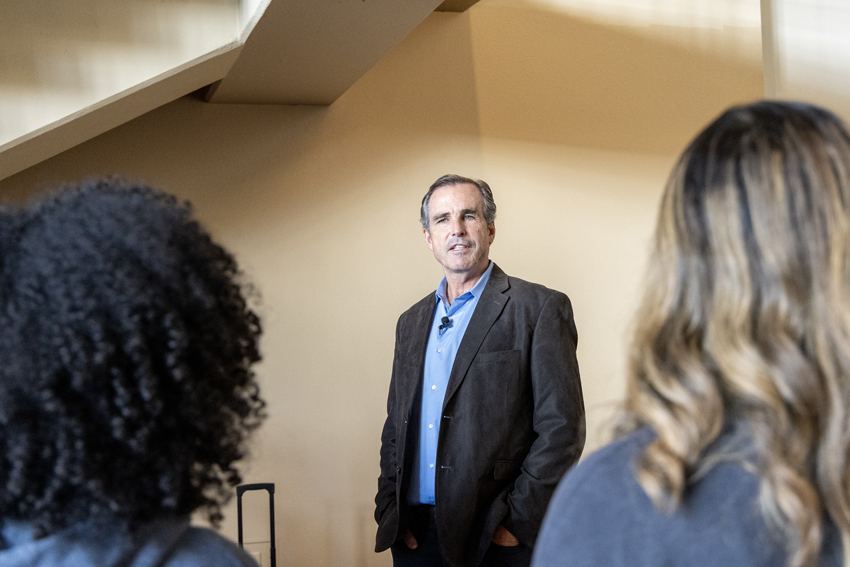This is the second in a two-part feature on the rationale and consequences of teenage sexual activity. For the previous installment, read the Feb. 21 article Promiscuous behavior leads to emotional damage.
No matter the generation, no matter the era, adolescences still partake in sexual intercourse despite known consequences. Although having premarital sex does create emotional damage, the most advertised issues are Sexually Transmitted Infections (STIs) and pregnancies.
Since the 1980s there has been a reduction in teen sexuality, but throughout the 2000s the percentage has remained the same. Thus, the birth rates amongst teen parents have remained relatively steady throughout the 21st century.
To help prevent both pregnancy and STIs professionals recommend all sexually active people to use condoms. Even if woman are taking birth control, the use of condoms protects both partners from any STIs the other could be carrying. Since 2003, the percentage of high school students who use condoms have gone up to 63 percent from the previous 46 percent.
In the US, 88 percent of new STI cases come from three main infections: human papillomavirus (HPV), trichomonas and chlamydia. There are over 40 different strains of HPV that affect both men and women, which is the most common STI in the U.S. The results of HPV include genital warts, cervical cancer and cancer in other areas of the reproductive system.
According to junior high science teacher Terry Richards being aware of different kinds of STI’s is educational and can cause an individual to think twice before having sex.
“Some of them [STIs], all you have do is get it one time,” Richards said. “For instance, herpes is a lifetime thing, and I don’t think anybody would want to have those kinds of diseases for the rest of their life. So, if your abstinent until your married and if the other person is abstinent until their married then you don’t have to worry about STDs [Sexually Transmitted Diseases].
Even if a sexually active person “knows” they do not have any STIs, they could in actuality be infected since some diseases such as chlamydia are asymptomatic and are frequently undiagnosed and therefore untreated. In the U.S., approximately three million people are affected with chlamydia each year and since it is asymptomatic in women, up to 75 percent of the infected women are unaware of their infection.
In a recent study, Freakonomics asked various college women about their take on sex and how many partners they plan to have before marriage.
A New York University student, Ali, was asked a series of questions regarding the topic:
How many more people do you think you?ll sleep with before you get married?
“I intend to sleep with a lot of people before I get married (if I get married),” Ali said. “I think I?ll sleep with at least 20 people, maybe five of which will be as a part of committed relationships.”
Youths aged 15-24 years old account for 1/4 of the sexually active population in the U.S., but also acquire nearly 1/2 of all new STI cases. Despite statistics, less than 20 percent of sexually active young adults and adolescents are offered screening in managed care or other clinical settings, which then allows the individual to further spread the disease if they are infected.
The American College of Obstetricians and Gynecologists recommends that doctors annually screen for chlamydia and gonorrhea infections in all sexually active adolescents for early detection and then seek out possible treatments.
According to the Centers for Disease Control (CDC), in 2000 the source to report STI’s amongst youths was predominately a private physician for both men and women. Although, an STI clinic did beat out the private physicians for men by 10 percent.
Although STIs will forever alter a life, pregnancy out of wedlock can also cause issues for the individuals who participated in the act. Even though there are options for the parents, their choices, pre and post sexually activities, will forever weigh on their conscience.
In the U.S. during 2007, the amount of births rates amongst 1000 women ages 15-19 was 43, which is higher than any other country.
Richards advises any adolescent who is currently involved in sexual activity to abstain from any further actions and
“My advice would be to stop and start over,” Richards said. “There is such a thing as a second virginity, but they are going to have to learn to control themselves. The way they will do that is to find somebody to hold them accountable; they have to make a change in the way they think, in what they do and in what they listen to because it all starts in the brain and if you pollute your brain then you will pollute everything else.”
If there are any questions regarding teen sex, contact the local Planned Parenthood 559.446.1515.
For more information visit the CDC website.







Logan Rood • Mar 22, 2012 at 12:04 am
I can’t believe Trevor talked to the City Council and voiced his opinion! I would be so terrified to do that! Good job, Trevor!
Chandler Vargas • Mar 22, 2012 at 12:04 am
It took a lot of courage for Trevor to boldly approach the City Council and present his opinion! What a stud muffin!